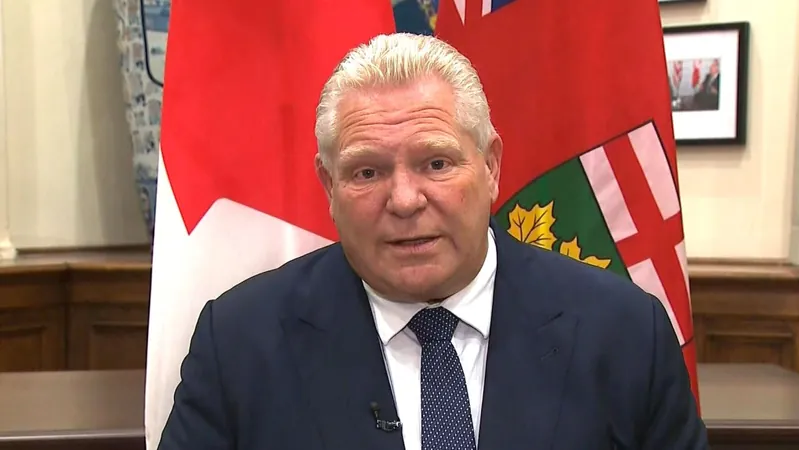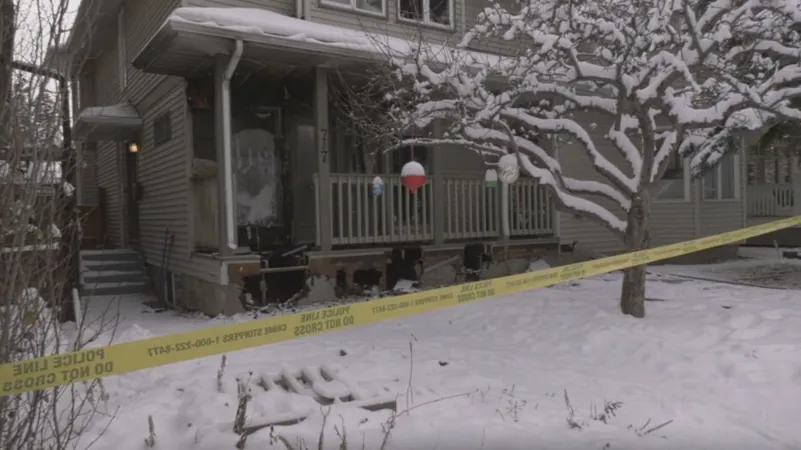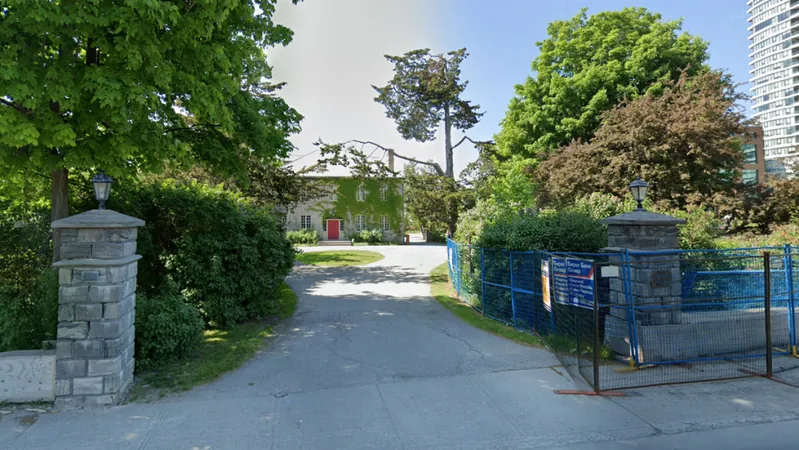
Trudeau Taken Aback as Provinces Push for Swift Defense Spending to Meet NATO Goals
2024-12-01
Author: Benjamin
In a surprising display of unity, Ontario Premier Doug Ford has revealed that all provincial leaders are collectively urging Canada to ramp up its defense spending in alignment with NATO commitments ahead of schedule. According to Ford, Prime Minister Justin Trudeau expressed astonishment at the provinces’ proposal during a recent meeting.
Ford, who currently chairs the Council of the Federation of Canada’s Premiers, shared this exclusive insight on CTV's Question Period. The impetus behind this unanimous call to action stems from escalating tensions, particularly following President-elect Donald Trump's threats of imposing substantial tariffs on Canadian imports. During discussions, the premiers highlighted the critical need to bolster national security and defense expenditures amid these pressures.
"Trudeau hadn’t committed to any changes," Ford noted in response to questions about whether the prime minister would accelerate Canada’s defense spending timeline, set presently for completion by 2032. "He was surprised that we had so much interest in it," Ford added, emphasizing the consensus among premiers on the importance of reaching the 2% of GDP NATO requirement.
Ford pointed out that with Trump pushing for NATO nations to fulfill their financial obligations, the time to act is now. "We can't wait years down the road. We need to do it immediately," he asserted.
Alarm over Trump's intentions spurred Trudeau to convene an emergency meeting with the premiers. The discussion reportedly included defense spending, as Canada seeks to reassure its allies and safeguard against possible U.S. policy shifts under the new administration.
U.S. politicians have echoed the demand for Canada to step up its defense spending. Representatives have suggested that Canada must be proactive in fulfilling its responsibilities to NATO to maintain favorable diplomatic relations, particularly as Trump has articulated expectations for equitable contributions.
The urgency of this matter is heightened by historical context; NATO members agreed to the goal of 2% GDP spending during the Wales Summit nearly a decade ago, with a commitment to achieve this by now. Currently, only 23 out of 32 member countries are on track to meet this commitment.
Ford also acknowledged concerns regarding border security, an issue that has taken center stage in Canadian politics. He stated that federal officials indicated a forthcoming plan to address these security challenges, though details remain vague.
The backdrop to all of this is Ontario's anticipated $27 billion in federal transfers for 2024-25. When pressed about potentially reallocating these funds for defense, Ford insisted that Ontario contributes more to the federal treasury than it receives, underscoring the need for a balanced financial approach that prioritizes defense without compromising other critical areas such as healthcare.
As discussions continue, critics, including Conservative Leader Pierre Poilievre, have targeted Trudeau for perceived inaction, labeling him as insufficiently robust in negotiations with Trump.
Amidst this evolving landscape, the dialogue around Canada's defense spending and NATO commitments seems set to intensify as the nation strives to navigate its international obligations while maintaining domestic stability.









 Brasil (PT)
Brasil (PT)
 Canada (EN)
Canada (EN)
 Chile (ES)
Chile (ES)
 España (ES)
España (ES)
 France (FR)
France (FR)
 Hong Kong (EN)
Hong Kong (EN)
 Italia (IT)
Italia (IT)
 日本 (JA)
日本 (JA)
 Magyarország (HU)
Magyarország (HU)
 Norge (NO)
Norge (NO)
 Polska (PL)
Polska (PL)
 Schweiz (DE)
Schweiz (DE)
 Singapore (EN)
Singapore (EN)
 Sverige (SV)
Sverige (SV)
 Suomi (FI)
Suomi (FI)
 Türkiye (TR)
Türkiye (TR)